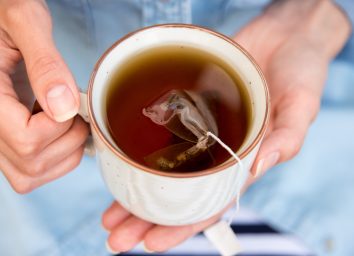5 Eating Habits You Should Know from the World's Longest Living People

There is a breadth of knowledge currently available about nutrition and health, but we can all agree on one very fundamental truth: what you put in your body matters. After pouring through a variety of studies and articles and opinions, that much is clear. Food is medicine, and as with any medicine, it can power your body to do incredible things.
For example, food can even help you live to be 100 years old. As of 2021, over 70,000 Americans have celebrated their 100th birthday—and it turns out, what they eat matters more than almost anything else. The Blue Zone project has done research on just how centenarians do it, focusing on five "blue zone" communities where people have the most incredible longevity in the world.
From the Nicoya Peninsula in Costa Rica to Okinawa, Japan, the people in these communities all share a variety of behaviors that increase their lifespan. Community, mindset, and movement are important. But there is no match for the power of the food they nourish themselves with. We dug in deep and rounded up the top five eating habits that centenarians share.
They observe the 80% rule.
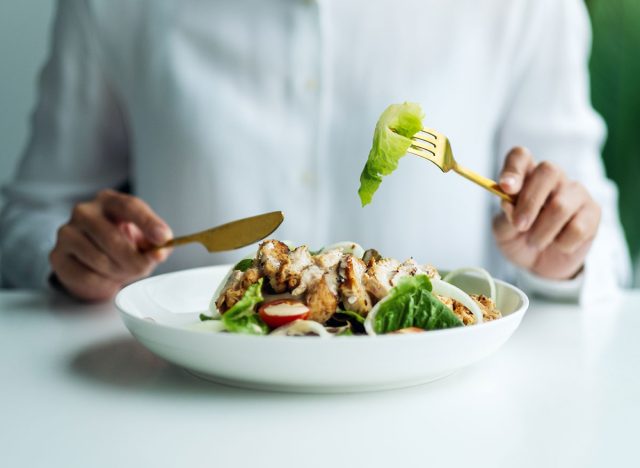
We've heard of the 80% kitchen, 20% gym rule before, but this is a different 80% guideline—one that dates back 2,500 years. Apparently, it is tied to a Confucian mantra that is called "hara hachi bu" in Okinawa, and it is a reminder to stop eating when you feel like you are 80% full. As the Blue Zone project puts it, "the 20% gap between not being hungry and feeling full could be the difference between losing weight or gaining it."
They eat less as the day goes on.
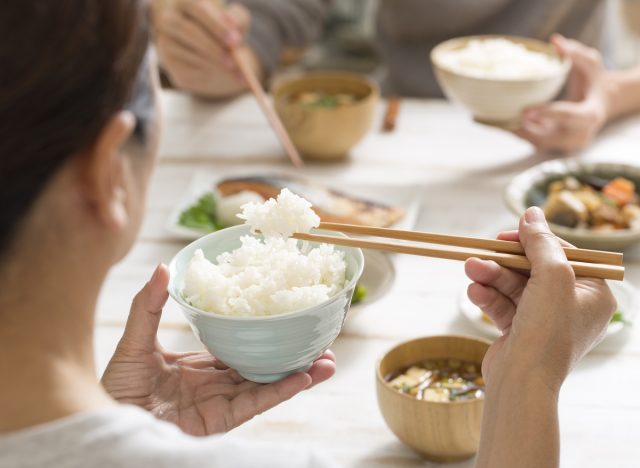
Depending on your eating hours, intermittent fasting may be a version of this tactic. The idea here is that as it gets later in the day, the human body should consume fewer calories. In the Blue Zones, people tend to eat their smallest meal last—and not very late at night—and then don't eat for the rest of the day. Great news for those of us who like big breakfasts!
They load up on beans.
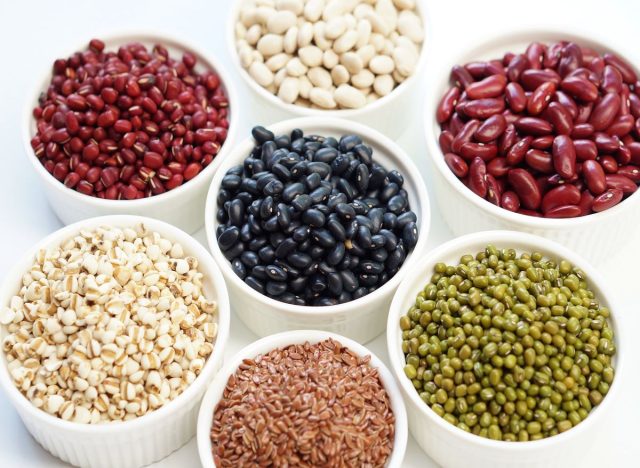
Beans, beans, the magical fruit. Apparently, their magic extends all the way into life expectancy—a bean-rich diet is the core of most centenarian lifestyles. This can mean fava beans, black beans, and even soybeans and lentils. For more on just how healthy beans really are, check out our research on the Secret Side Effects of Eating Beans.
They eat meat sparingly.
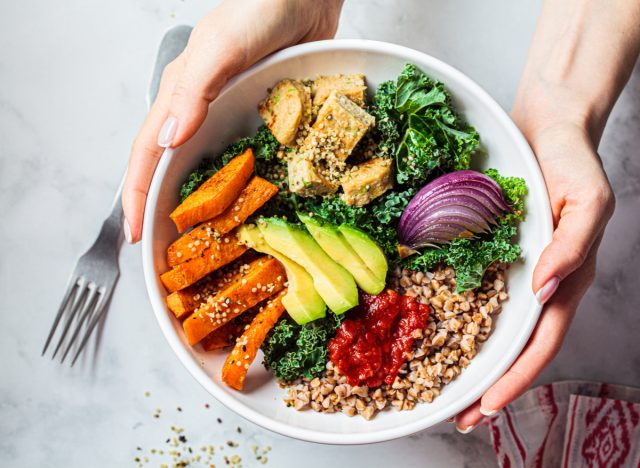
Perhaps this is less surprising, given the increasing societal shift away from meat towards plant-based diets. On average, people in blue zones eat meat only five times per month. The detail that might shock you, though, here? The primary kind of meat consumed is pork.
They keep serving sizes small.
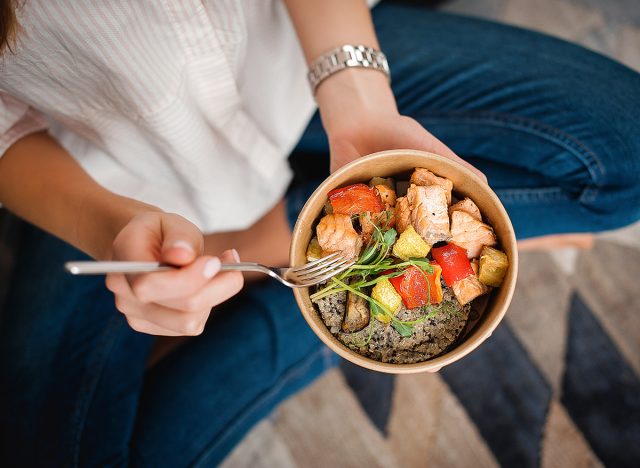
Here is another hack that has been widely promoted across many health channels, but the centenarians confirmed it: serving size is, in fact, key. According to the Blue Zone Project, serving sizes are typically kept between 3 to 4-ounces, which is about the size of a deck of cards. To get a handle on serving sizes, here are 18 Easy Ways to Control Your Portion Sizes.



